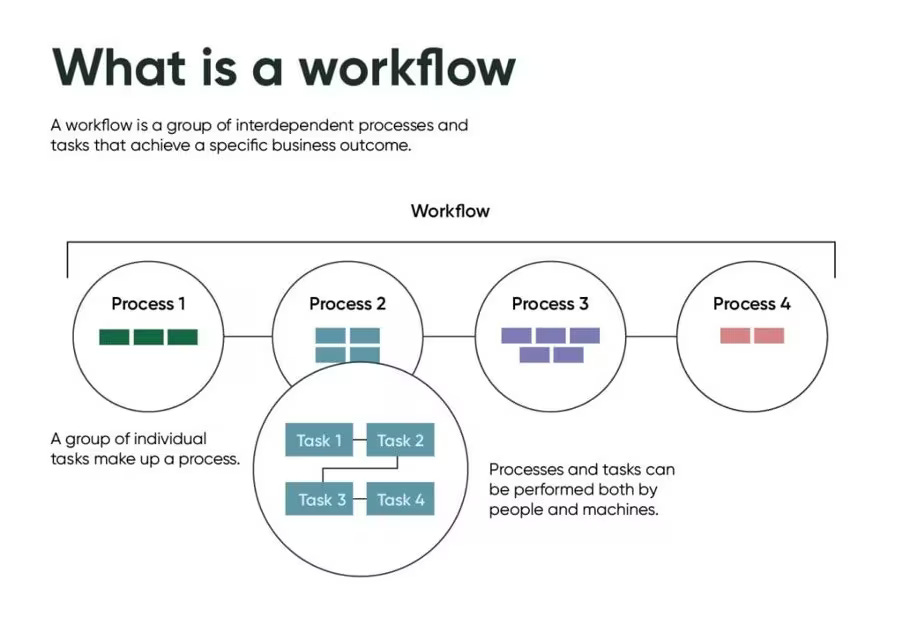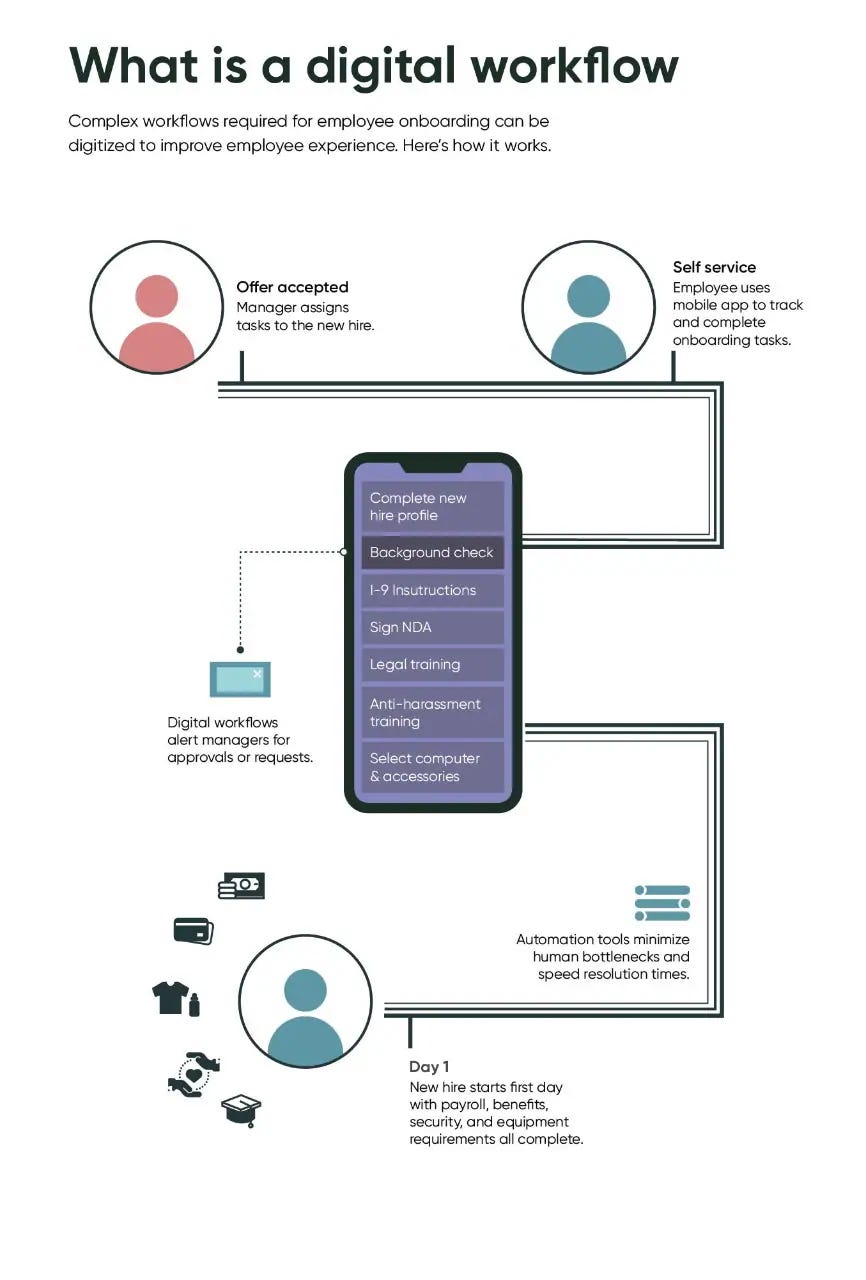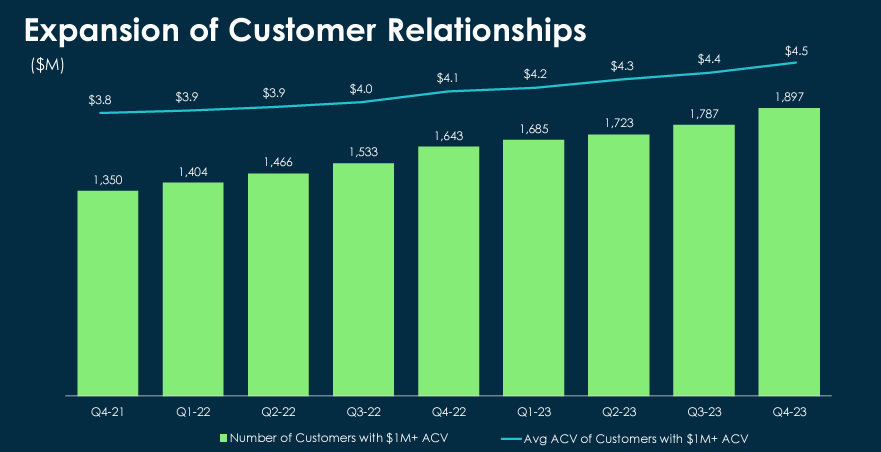ServiceNow's Generative AI Success: What does ServiceNow do?
How the $150B+ giant's AI launch is shaping the future of workflow automation
In mid November, ServiceNow unveiled its new “Now Assist” platform to improve productivity and efficiency with GenAI. The launch has been a remarkable success and one of the untold stories of GenAI at the application layer.
Source: ServiceNow Q4 investor deck [link]
While operating under a single unified data platform, ServiceNow has continually launched new products with 11 individual products north of $250M in ACV.
Background on ServiceNow
ServiceNow is a $150B+ cloud-based platform, founded in 2004 in Santa Clara, CA by former Peregrine Systems CTO Fred Luddy. The core thesis of the company was to streamline enterprise operations, transforming old and manual ways of working into modern automated digital workflows — pioneering the category of “workflow automation”. Today, the Company is led by software icon Bill McDermott, who as former CEO of SAP led the company to increase its market value from $39B to $156B through a challenging transition to cloud.
At its core, ServiceNow automates routine business tasks, facilitates better decision-making through real-time data insights and enhances overall enterprise efficiency by connecting different parts of an organization through a single, unified interface. ServiceNow offers a broad range of applications designed to improve service delivery and employee satisfaction — with a beachhead product in ITSM and operations to additional products in customer service and HR. Customers love its highly customizable yet deep tailored solutions which reduce costs and increase productivity. With AI and its advanced capabilities, ServiceNow increasingly is using predictive analytics and intelligent automation to help businesses not only react to issues but anticipate and prevent them.
Product: the “Now” Platform
The Now Platform, designed from the ground up for the cloud and anchored in a unified data model, leverages a secure, task-oriented technology foundation. With embedded AI and machine learning capabilities, it ensures smooth data integration across applications, departments, and pre-existing systems. This integration facilitates the automation, optimization, and modernization of work processes, streamlining operations across the enterprise landscape. ServiceNow's AI workflow generation utilizes AI to automatically create and refine business processes, ensuring seamless coordination and execution across various organizational functions by analyzing patterns and data from past interactions.
Here is an example of a ServiceNow digital workflow, involving onboarding a new employee and a set of tasks to automate involving this process — new accounts, payroll, benefits, security, and equipment.
ServiceNow has 3 core types of workflows:
Technology Workflows (~60%)
Customer and Employee Workflows (~25%)
Creator Workflows (15%)
ServiceNow’s most popular set of workflows are “Technology” workflows, which are defined as ITSM, IT Operations, Asset Management, Security and Risk, Strategic portfolio management. Its “Customer and Employee Workflows” include Customer Service, Field Service, HR, Workplace Service and Legal. Creator Workflows include App Engine, Automation Engine, Platform, Privacy and Source-to-pay.
ServiceNow is useful for nearly every vertical, with over 85% of the Fortune 500 leveraging the platform and 8,100+ global customers. The Company might be the best “true” enterprise company in terms of its key metrics. The Company boasts a 98-99% renewal rate — a number that is truly absurd to contextualize and highlights how core its automated workflows become to customers.
Its success in the enterprise is highlighted with its $1M+ ACV customers, of which ServiceNow has nearly 2,000 with an average size of $4.5M per year. These customers keep expanding year-over-year, adding more workflows and seats — providing credence to the mission-critical aspect of the Now suite. ServiceNow is perhaps the posterchild for a true “land and expand” strategy and it has the cohorts to prove it.
ServiceNow’s GenAI Launch
ServiceNow is a multi-product platform company with solutions for various key categories. Now Assist offers 5 packaged genAI products for:
IT Service Management
Customer Service Management
HR Service
Creator and developer
Field Service Management
The Company highlighted the impact of GenAI on growth in Q4, as ServiceNow approaches $10B of ACV growing 27% year-over-year at ~30% Non-GAAP operating margins — posting a rule of 40 score of 57%, near the best of the best. It posted 168 transactions over $1M in net new ACV in the quarter (including 5 deals over $10M), up 33% year-over-year — thanks to the launch of new genAI products.
Bill McDermott (CEO) highlight success on the gen AI product suite including:
"In Q4, our gen AI products drove the largest net new ACV contribution for our first full quarter of any of our new product family releases ever, including our original Pro SKU."
“Today, we expanded our strategic alliance with EY to co-create solutions for generative AI governance for our customers. And of course, EY will also be using ServiceNow's generative AI capabilities to enhance experiences for all of their employees.” — Announcement
"Today, ServiceNow and Visa announced a 5-year strategic alliance to transform payment service experiences. In the initial phase of the alliance, the companies will launch ServiceNow Disputes Management built with Visa, a single connected solution for dispute resolution. This gen AI-powered solution will offer end-to-end dispute resolution for customers globally, everything from the first indication of a questionable charge through early investigation to final resolution." — Announcement
"What's really happening, and I can say this after 186 CEO meetings in the last 6 months, the CEOs are now getting very involved with the gen AI revolution. They realize there has to be architectural adjustments to their environment and the manner in which they manage their data and the platforms they're beholden to actually take advantage of Gen AI.
So there's a real appetite to invest in gen AI, and there's no price sensitivity around it because the business cases are so unbelievable. I mean if you're improving productivity, 40%, 50%, it just sells itself."
“Virtual Agent Update drives faster issue resolution through advanced conversational AI chat. Employees get the immediate answers they need. Businesses get higher self-solve rates, and it only takes 15 minutes to set it up.”
"ServiceNow's developers have been using text to code for several months. They are generating high-quality code using text to describe the type of code they want. This has increased our developer innovation speed by 52%."
In conclusion, ServiceNow's success in generative AI showcases the transformative potential of integrating AI into enterprise software solutions. Founders and operators should recognize the importance of leveraging AI to streamline workflows, enhance productivity, and drive innovation within their own software offerings. By embracing generative AI technologies, we can unlock new opportunities for growth, differentiation, and customer value in the increasingly competitive landscape of enterprise software.












